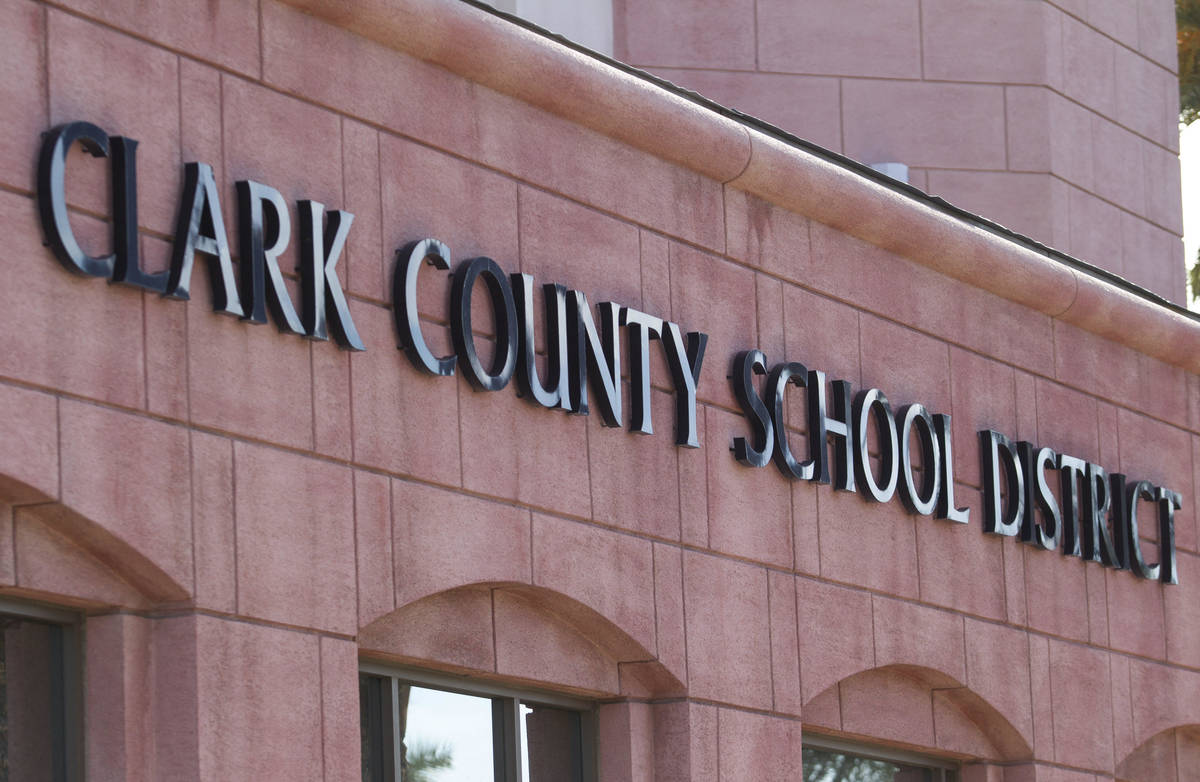Nearly 1 in 3 CCSD students unreachable during distance learning
Nearly a third of the Clark County School District’s 325,081 students could not be contacted the week after spring break and were marked absent from distance learning, new figures submitted to the Nevada Department of Education show.
A total of 211,438 CCSD students were marked present from April 14-17, either because their teachers had reached them by phone or email or they had made progress on learning activities, the district said in a memo submitted Monday to the state Department of Education. An additional 11,451 students had documented exemptions that limit their ability to engage in distance learning, such as a lack of internet, computer access or transportation to food distribution locations to pick up hard-copy packets.
That means 102,192 students — or more than 31 percent of the total — were unaccounted for during the week.
The report is the first since CCSD began tracking two-way communication between teachers and students after initially instructing teachers to document all attempts at contact, whether they reached anyone or not. Under that system, the district reported 257,486 student contacts during the first week of distance learning and 230,361 students contacted the second week.
The district changed its method of logging contacts after receiving what representatives described as clarifying information from the Nevada Department of Education.
But Department of Education spokesperson Greg Bortolin said any clarification the district received from the department had also been previously communicated at the commencement of distance learning.
School district representatives did not respond Tuesday to a request for comment on the new numbers.
Door-to-door wellness checks
The district has recently implemented a new initiative to reach its absent students.
Attendance officers and social workers have been going door to door to students’ homes to conduct wellness checks, with 62 students reached on the first day of the pilot program Thursday.
Officers have also been able to help families update their contact information in Infinite Campus, according to Mike Barton, the district’s chief college, career, equity and school choice officer. Teachers and administrators have reported that incorrect contact information was a major reason that missing students could not be reached.
Jobs for Nevada’s Graduates, a nonprofit focused on students from low-income backgrounds, as well as those who struggle in school because of disengagement, absenteeism or poor grades, has reported a higher rate of success in reaching its students, some of whom attend CCSD.
Executive Director Rene Cantu said the group has reached over 90 percent of the students it works with across Nevada and has heard a few common themes, especially requests for help with accessing a computer or the internet.
The second-most common request has been for socio-emotional support, Cantu said.
‘Overwhelmed by circumstances’
“Young people need more than one service. They need ongoing, wraparound services to survive this crisis, including food and technology assistance,” Cantu said. “They and their families may be overwhelmed by the circumstances.”
Cantu said the program first did a wellness check with students and has now shifted gears to education, with lessons on employability skills that he believes will be even more pertinent for graduates facing the economic effects of COVID-19.
He said Clark County teachers are understandably overwhelmed with the number of students they need to reach weekly and that he hopes the district remains open to partner organizations that can help with the work. Specialists from Jobs for Nevada’s Graduates, for instance, may coach a student from his or her sophomore year through the year after graduation, establishing an ongoing connection that’s beneficial when trying to reach students during closures, he said.
Of students who still can’t be reached, Cantu said his team is concerned but optimistic.
“We’re very persistent in terms of using emails, phone calls and not giving up when a young person does not return a phone call,” he said. “Our team is very persistent.”
Digital divide
The ACLU of Nevada Tuesday also sent a letter calling on Gov. Steve Sisolak to address disparate participation in distance learning caused in part by unequal access to technology or assistive tools for students with disabilities.
“The current state of affairs in which remote learning is fully accessible to some students, partially accessible to others, and inaccessible to many, is not only unacceptable, it is unlawful. Governor Sisolak must act quickly, decisively, and with every resource at his disposal to ensure Nevada’s students receive the equal educational and privacy rights to which they are entitled,” ACLU of Nevada Executive Director Tod Story said in a statement.
CCSD has given out approximately 60,000 Chromebooks to students, with another 200,000 awaiting processing and deployment.
Contact Aleksandra Appleton at 702-383-0218 or aappleton@reviewjournal.com. Follow @aleksappleton on Twitter.











































